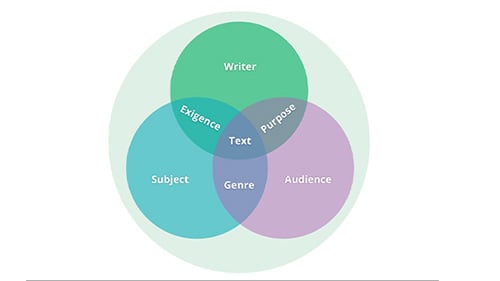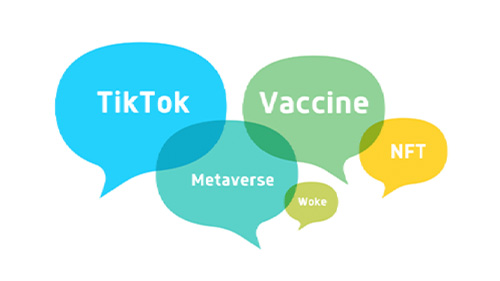AP Language: Teaching the MCQ
With 45 questions in an hour, four answer choices per question, it’s understandable why the multiple-choice section can be intimidating.
AP & Honors Mathematics
Explore Wiley titles to support both AP and Honors mathematics instruction.
Literacy Skills & Intensive Reading
Connections: Reading – Grades 6–12
Empower student success with a proven intensive reading program that develops strong reading skills in striving readers.
Drama, Speech & Debate
Basic Drama Projects 10th Edition
Build students’ confidence and competence with comprehensive, project-based theatre instruction.
Literature
Connections: Literature
Support learners as they study dynamic, relevant texts and bring the richness of diverse voices to students through literature.
Literature & Thought
Develop critical thinking, reading, and writing across literacy themes, genres, historical eras, and current events.
Language Arts
Vocabu-Lit® – Grades 6–12
Help students build word power using high-quality contemporary and classic literature, nonfiction, essays, and more.
Connections: Writing & Language
Help students develop grammar, usage, mechanics, vocabulary, spelling, and writing and editing skills.
Reading/English Language Arts
Measuring Up to the English Language Arts Standards
Incorporate standards-driven teaching strategies to complement your ELA curriculum.
English Language Learners
Measuring Up for English Language Learners
Incorporate research-based best practices for ELLs with an approach that includes a focus on language acquisition strategies.
Mathematics
Measuring Up to the Mathematics Standards
Incorporate standards-driven teaching strategies to complement your mathematics curriculum.
Foundations
Measuring Up Foundations
Help students master foundational math skills that are critical for students to find academic success.
Science
Measuring Up to the Next Generation Science Standards
Give students comprehensive NGSS coverage while targeting instruction and providing rigorous standards practice.
Assessment
Measuring Up Live
Deliver innovative assessment and practice technology designed to offer data-driven instructional support.
For a better website experience, please confirm you are in:

In this lesson, students are asked to consider how they are situated within the world around them–locally, nationally, and globally. Students will identify contemporary issues, being sure to define them as controversial contemporary issues, happening locally, nationally, and globally. Students will then categorize these issues and evaluate what this reflects about our current social, historical, and cultural climate. Students will then consider how they are situated within this climate, how they respond to these issues, and how it changes the way we create and perceive messages.
Common Core Objectives:
9-10.L.3: Apply knowledge of language to understand how language functions in different contexts, to make effective choices for meaning or style, and to comprehend more fully when reading or listening.
9-10.SL.1: Initiate and participate effectively in a range of collaborative discussions (one-on-one. in groups, and teacher-led) with diverse partners on grades 9–10 topics, texts, and issues, building on others’ ideas and expressing their own clearly and persuasively.
Come to discussions prepared. having read and researched material under study; explicitly draw on that preparation by referring to evidence from texts and other research on the topic to stimulate a thoughtful, well-reasoned exchange of ideas.
Propel conversations by posing and responding to questions that relate the current discussion to broader themes or larger ideas; actively incorporate others into the discussion; and clarify, verify, or challenge ideas and conclusions.
Respond thoughtfully to diverse perspectives, summarize points of agreement and disagreement, and, when warranted, qualify or justify their own views and understanding and make new connections in light of the evidence and reasoning presented.

Lauren Peterson (Master of Arts, Education) has been teaching AP® English Language and Composition in a number of states for more than ten years, most recently at Highlands High School in Fort Thomas, Kentucky, where she is also the schoolwide literacy leader. Before this position, Lauren served as a curriculum and instructional coach in Duval County, Florida. Lauren worked for College Board on a pilot curriculum designed to remediate common AP® English Language challenges and prepare students for Microsoft Office Specialist Certification. As an independent consultant for the National Math and Science Initiative, Lauren has written diverse curricula used by students across the country as well as training materials for beginning and experienced AP® English Language teachers. Lauren served as an AP® English Language Reader and continues to work as an AP® English Language trainer for new and experienced teachers.

With 45 questions in an hour, four answer choices per question, it’s understandable why the multiple-choice section can be intimidating.

In this activity, students will read and reflect on the different types of writing they might encounter on the AP® Language & Composition Exam....

In this lesson, students will choose pages from a scene from an assigned novel (this can be done with a shorter text, too). Students will start by...

Chief AP Language and Composition reader Michael Neal joins Dr. Brandon Abdon to discuss to the 2024 AP exam. {% video_player "embed_player"...

It’s a month before the AP exam and you’re freaking out. You're trying to think about what you need to review with your students, what you should ask...

Strong ideas matter in AP Language and Composition—but how students package those ideas often determines how clearly and persuasively they come...

Dr. Brandon Abdon and expert guests break down how to analyze results from the 2023 AP Language and Composition exam. {% video_player "embed_player"...

Join authors Dr. Brandon Abdon and Becky McFarlan to learn about how to connect learnings from the AP Lang and AP Lit courses. {% video_player...

While we want argument and rhetoric to develop logically and follow a line of reasoning, we also must recognize that sometimes what others see as...

This lesson provides strategies for predicting meaning, previewing texts, and making inferences about word meaning and vocabulary. Students will be...

For this activity, a place is considered to be a geographical location, whereas a space might be an abstract state of being. Students will review...

It's almost the end of the school year! With the exam behind you and your students, take a moment in class to reflect on this past year (while giving...
